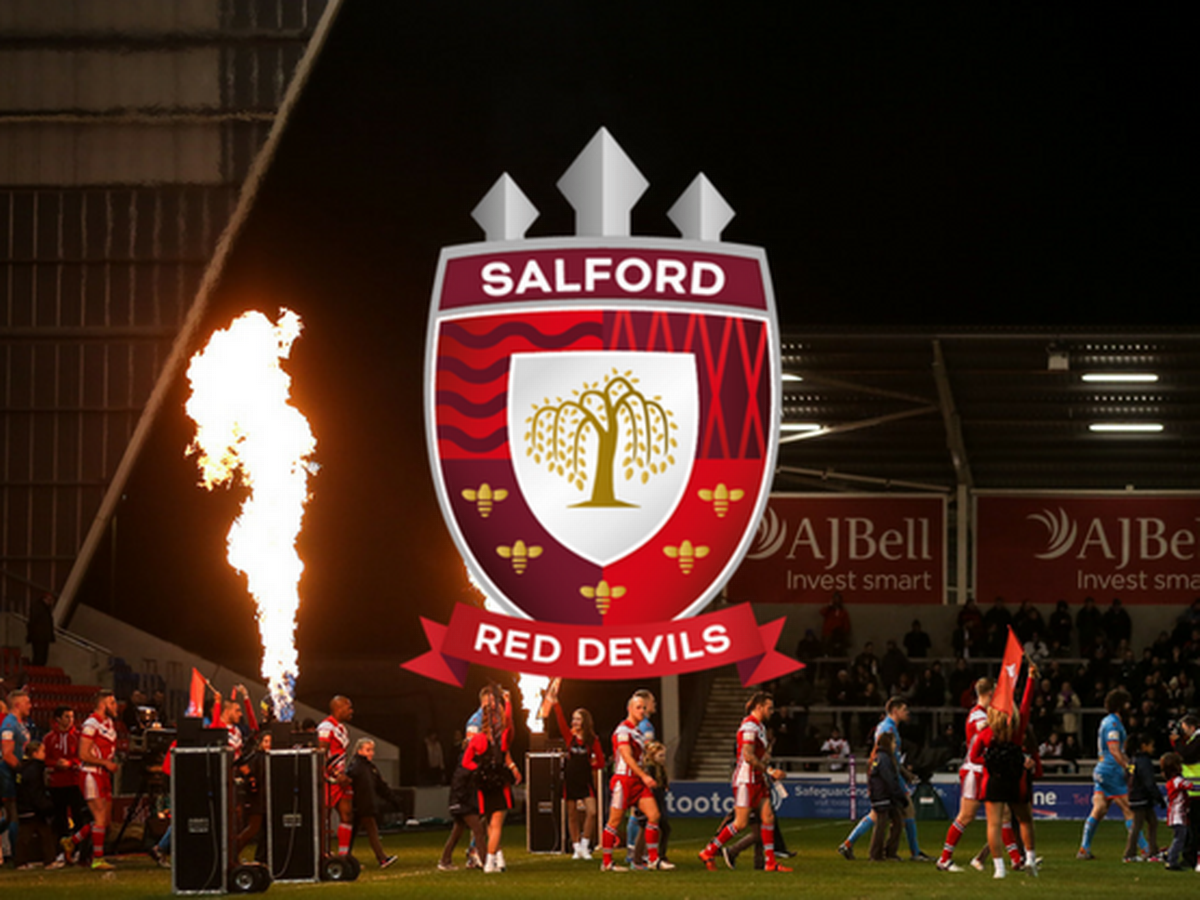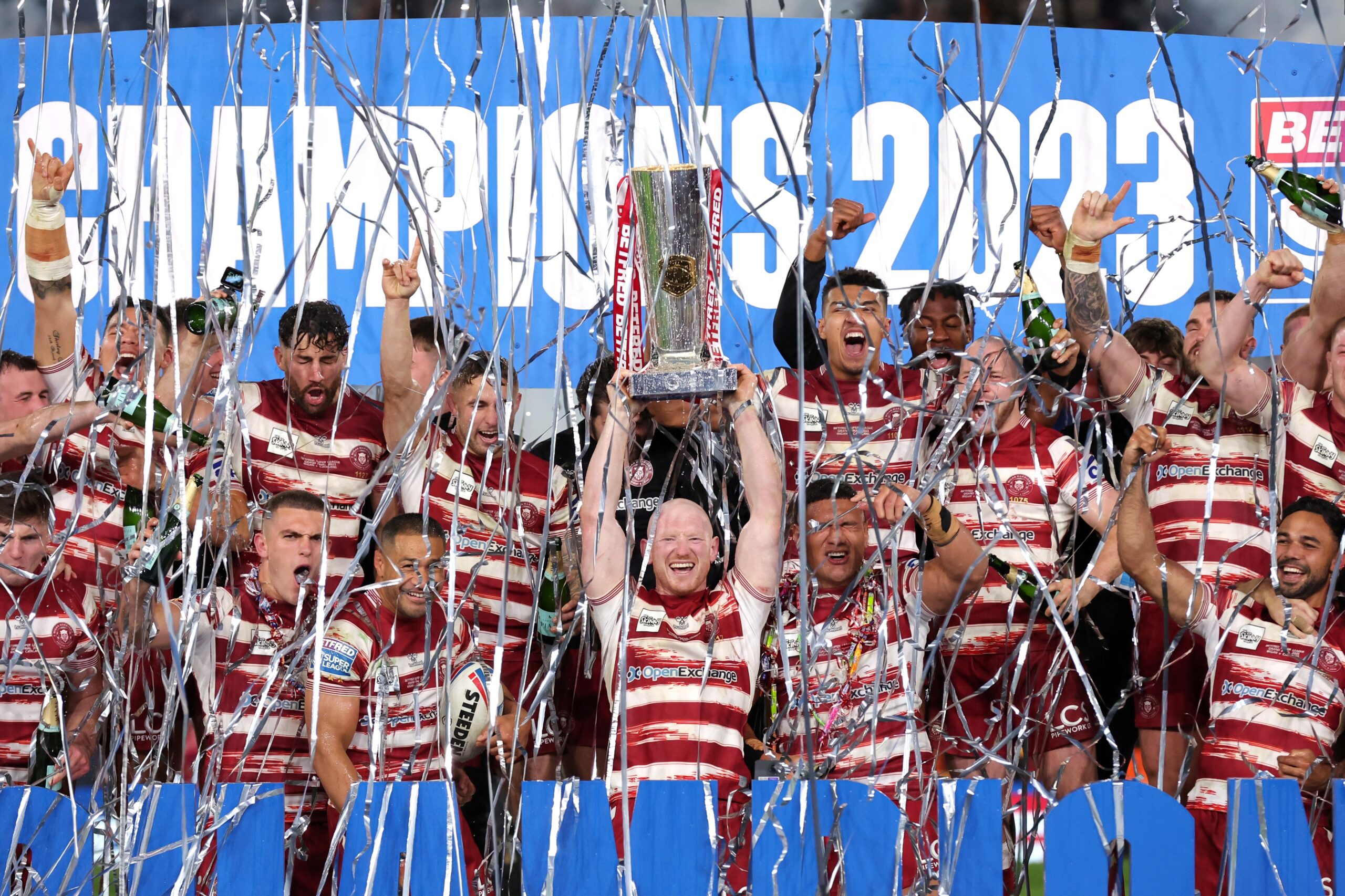The Rugby Football League’s licencing system has come under fire recently after the financial collapse of the Bradford Bulls showed it up for what it really was.
The grading of clubs in such black and white terms was completely ridiculous. Putting clubs into different categories was always going to lead to problems simply because so many clubs were struggling to survive when it happened. If the RFL had been fair dinkum about the process there would have been three different categories.
1. Teams that are not likely to go bust any time soon.
2. Teams that are struggling to survive.
3. Teams that will go bust if forced to commit financially in Super League.
The first category would have had Wigan, Leeds, St Helens, Warrington and Hull FC. The second category would have included most of the rest of the clubs in Super League. The last category would have included many of the teams that are now whinging that the licencing system is unfair and that they should be promoted into Super League in favour of the Bradford Bulls.
In a competition that is completely unsustainable, one in which clubs are spending more money then they can generate, any system that is in place will not work. Until the salary cap is lowered to a sustainable level it doesn’t matter what format the competition is played under, it will continue to push clubs to the very limit and see them go into administration.
The real idea behind licencing was that Super League could look to build towards a bigger and brighter future. The Rugby Football League needed a system in which it could keep the clubs it wanted in Super League and leave the ones it didn’t feel could compete in The Championship. In short, it was a way to call off the dogs. If they could come up with some black and white system that would allow them in a round about way to tell certain Championship Clubs to give up their unsustainable dreams of playing in Super League, great, lets go with it!
The problem they ran into is that clubs were falling over all over the place. The Wakefield Wildcats ominously went bust mid season and then the collapse of the Wrexham Crusaders forced the RFL to promote Widnes into Super League when that clearly was not what they had intended to do. Less than 12 months later the Bradford Bulls went into administration, Hull KR’s owners all but said they can not commit to sustaining a Super League club over the long term and the Salford Reds are quietly on a slow march towards oblivion.
Seeing all of this happening above them, teams like Halifax and Featherstone are calling for Promotion and Relegation to be reinstated to allow them to play in Super League at the expense clubs already in Super League. These calls are all about the self interests of these clubs. They are short sighted and stupid. They are typical of the way some English clubs are being run right now where by clubs have ambitions far beyond the reality that they find themselves in.
For some strange reason no one is looking at the effect that Promotion and Relegation would have had on Super League this season.
The Widnes Vikings were judged to be the best team to get promotion into Super League in mid 2011. They were given a 6 month lead in which was supposed to allow them a better chance to build a decent squad. This is an advantage no promoted club would normally ever have. Despite all of them, Widnes joined Super League and were completely out of their depth. They went from being one of the strongest clubs in The Championship to being cannon fodder in Super League.
If we had Promotion and Relegation in place, Widnes would have been Promoted in 2011 and Relegated in 2012.
Now Widnes fans rightfull point out that their inclusion in Super League can not be rated on their 2012 performance. They need time to build a squad worthy of a place Super League. Most people suggest this will take them between 3-5 years to do.
After financially commiting so much money to try and compete in Super League, do you realise how financially devastating it would be to then force the Vikings to play in The Championship next season?
It is not just about the playing squad….
Being part of Super League is what their players want, it is what their coaching staff wants, it is what their sponsors want and it is what their fans want. It is the nature of sport that when you get relegated, you lose people in every single one of those areas. You’re playing strength dissapears, you lose back room staff, fans stay away and sponsors ups and leave because they are no longer getting the exposure they want in the second division of the game.
Any strength the Vikings have right now would be completely wiped away and they would have to try and start rebuilding all over again.
Meanwhile, the promoted side now has just 3 months to try and find players good enough to compete in Super League. Something that is completely impossible to do. They have to find a sponsor, which is hard enough for top clubs, let alone newly promoted clubs who are likely to get few television games and could be out the door themselves in 12 months time. They also have to hope their coaching staff isn’t in over their heads against the long time professionals in Super League.
Good luck to any side facing that ridiculous scenario. How long do you think that side will last in Super League when an established team like the Bradford Bulls can’t even get by!
Even in the English Premier League soccer, with hundreds of millions of dollars on offer, clubs come up, cant compete, and go straight back down again. Not only that, they go bust too! All of that money on offer and Premier League clubs go bust! What does that tell you about the supposed Golden Bullet that is Promotion and Relegation?
Looking towards Australia, we have never had Promotion and Relegation. The ARL just signed a broadcasting deal that will see the NRL making $270 million dollars every single year for the next five years. Hard to say we are doing something wrong.
This season the Parramatta Eels came last in the NRL. Last year it was the Gold Coast Titans. The year before that it was the Melbourne Storm after they had all of their points stripped for salary cap breaches.
Can you imagine how ridiculous it would have been for the NRL to relegate any of these teams from the competition so that they could promote reserve grade clubs? I know that even the most ardent supporters of Promotion and Relegation is looking at the last few sentances and they know I am making a hell of a lot of sense.
Parramatta finished last this season. They have signed Ricky Stuart for the 2013 season. They have kept all of their star players such as Chris Sandow, Jarryd Hayne, Willing Tonga and the like and are even persuing other players as we speak. None of this would have been possible if we had Promotion and Relegation in place.
In modern day sport where you have professional players and coaches, Promotion and Relegation does not work. To build a successful club, you have to be allowed to build on a stable foundation that does not include a trap door out of the competition. Professional players and coaches aim for the top. It is nice and romantic to think that the local star just wants to play for his local club, but the reality is that he can not afford to leave money on the table playing for a club in lower divisions and playing against semi professionals.
All Promotion and Relegation does is undermine the most vunrable clubs in the sport. When you have an extremely popular sport, you can give the apearance that this doesn’t have too much of an effect, but Rugby League in Great Britain simply does not have that luxury.
The Bradford Bulls are a famous club based in a big city that less than a decade ago was completely dominating Super League. Even in their current position, they are more capable of surviving in Super League than most other Super League clubs and every single other Championship club. That might not sit well with fans of those other clubs, but that is the reality of modern day sport.
The sooner Championship Clubs stop pushing for the unobtainable goal of being a Super League powerhouse, the brighter their future will be. After all, these clubs that are the big guns of The Championship are not even on the radar when it comes to the level needed to be a Super League club.
Just ask the Widnes Vikings…











I’m not too sure there, Widnes had been mid table championship for the entire 3 seasons since their last SL application.
I think the biggest problem in the UK is that the licensing system doesn’t reconcile the ambitions of any of the heartlands clubs. Licensing has an expansionist agenda geographically but it seems like the elephant in the room with the system. The ambitions of many heartlands clubs with huge history are simply not compatible with the licensing system. It is a blueprint towards SL Europe plain and simple but it cannot get the momentum or interest at the moment to work in that way at the moment and it seems the RFL don’t want to close the door and upset the clubs outside the SL too much. In the long term if you can’t find yourself a big unique catchment area don’t expect to be in SL.
I remember a while ago Nigel Wood saying that Championship clubs needs to find a level and be comfortable at that level of competition and I think that’s likely to be the case going forward, accept your lot and be happy with it.
As for the salary cap, it was pointed out by Nick Youngquest on twitter that the money paid to each NRL club from the TV deal is more than the salary cap for a club. In the UK the salary cap is far higher – it needs to be achievable for every club to work. I’d also welcome a discount or part exemption for developed talent – although that would promote bulk snapping up of youngster onto contracts just in case.
Youngquest is flat out wrong. The grant given to NRL clubs does not cover the salary cap for the first grade side, let alone money spent on reserve grade teams, Under 20’s side or the various other junior sides.
They are hoping to even that up a little more from next year though.
Ah well, mis-informed there – still the point that the salary cap needs to be affordable rings true.
No doubt. The cap is just too high right now for the amount of money the game in Great Britain is generating.
You can’t blame clubs outside of Super League for wanting to return to promotion and relegation. As you said it’s in their own interests and every team wants to reach the top even if that goal is unrealistic. Promotion and relegation is a lot more important in British sport than in Australia or the US. It’s part of the sporting culture and that’s why people will always want it reinstated.
The problem for many Championship clubs is that they know Super League licensing isn’t a level playing field. It’s no democratic process, it’s just a façade so the RFL can pick and choose which clubs they want. It doesn’t really matter whether Featherstone or Leigh meet all the criteria set out, the RFL would still prefer a bigger club even if they were financially mismanaged. Their only chance of getting into Super League is to hope a club like Castleford or Salford go bust; even then they have to hope that there isn’t another Championship club with a bit more history and with a chance of getting slightly bigger attendances. The criteria is meaningless. Championship clubs have the right to be a little pissed off because they are being made to jump through hoops under the illusion that licensing is some sort of democratic process.
The RFL made the right idea by introducing licensing because as unfair as it may seem in a country where promotion and relegation is seen as an essential part of professional sport, the only way to have a strong Super League is to ensure the clubs who can compete at the highest level are at the top.
Unfortunately it makes a mockery of it when there are clubs that can barely survive. There isn’t a lot of difference between clubs like Salford & Cas and clubs like Halifax, Leigh and Featherstone, so why are those clubs still part of the ‘elite’ competition?
This gets on to the point about 14 teams just being too much for Super League. There aren’t that many teams who can compete at the top level. The idea of having more ‘elite’ teams than in the tier below is crazy given the disparity between the teams in Super League. Increasing the number of teams was a huge mistake.
The RFL need to keep licensing but they also need to be more ruthless. If they try to even up the competition by making sure all teams operate at the same level as the clubs near the bottom all that’s going to happen is the league will become weaker and weaker.
Looking at it in simple terms, Super League itself is a sinking ship in many respects, and no amount of playing catch-up, bailouts or dispensation can really stop that. For the sake of the teams and supporters, it needs to die so they can then hopefully live.
EagleEyePie, promotion and relegation is very much entrenched in British psyche, but unlike football, there is not enough money to sustain (truly sustain I mean) team whilst they are out of SL. Look at LUFC. Pay lots for players. Not win enough to make big money in tournaments. Huge debt, sell good players to try and recover some money. Drop down from the big time and continue to flounder still almost ten years later.
The salary cap at the moment is unfair, as not everyone can spend it. By shutting down SL as we know it and starting fresh, new laws and rules can be made to ensure a more even playing field. When everything is settled, and team across the competitions are more sustainable, then promotion/relegation may work. Right now, it would be the death knell for many. Clubs would die, and that weakens the product as a whole. You get an ingrown toenail, you don’t cut off the toe.
Short term pain, for sure. Many players may try their luck in the NRL or various rugby comps. But if you want a competition to watch in the future, well, one worth watching anyway, something drastic needs to happen, sooner rather than later.
I definitely agree that it was right to scrap promotion and relegation and that it is essential if there is going to be a strong Super League.
The problem is people also seem to be clouding the financial issues with the salary cap! Super League will not be saved by significantly lowering the salary cap, it will simply risk killing the sport as a professional game altogether.
There are teams who can afford to spend to the full salary cap level, a reasonable number. You’ve got to ask why throw all that away because some teams can’t do it. If teams like Salford and Castleford can’t afford to spend to the Super League salary cap they should play in the Championship.
By reducing the salary cap you aren’t going to level the playing field at all. The wage demands of players will not reduce significantly. The big clubs will still have most of the best players and the smaller clubs will still overspend on average players.
It would place increased emphasis on having a strong academy system and guess which clubs have the best academy systems? The big clubs! Salford may have finished 2nd in the under 20’s competition this year but there’s usually a club who have a successful year at academy level. they generally don’t maintain that.
A slight lowering of the cap might help but any huge reduction will just eliminate almost all of what little quality is in the Super League and then the same inequality and the same issues will continue, the product will just be much worse.
Even St Helens chairman has come out this season and said Super League needs a complete overhaul of its financial set up.
The vast majority of players in Super League are over paid anyway. I’d suggest that at least half the players in the competition are only semi professional level players anyway.
He’s right that there needs to be an overhaul in the financial set up but it has to go into much more depth that simply lowering the salary cap. It seems a lot of the people in charge of Super League clubs have little idea of how to run a team in a financially viable way.
There’s little doubt that Super League players are overpaid but then it’s all relative anyway. Compared to British sports stars they aren’t necessarily well paid, especially compared to rugby union players. There also needs to be some sort of financial incentive to get good athletes to see a career in rugby league because most of the best athletes in the country haven’t even seen a single game of RL.
The problem is once you pay a player a wage it’s very hard to then get them to agree to what would be a significant wage cut. Some players would just move to a club willing to pay them what they want, others will move to rugby union while some will just give up on the game altogether and find other employment.
Smaller clubs seem to be much more likely to overspend on players. London spent the full amount of the salary cap this year and were dreadful, while Wigan started the season below the cap limit and finished top of the league.
Reduce the cap and some clubs will still fail to manage their finances sensibly. The game will just end up going back to being a semi professional sport. Maybe that’s all it should ever have been, but that’s what it will become once you start trying to bring the better run teams down to the level of those that are poorly run.